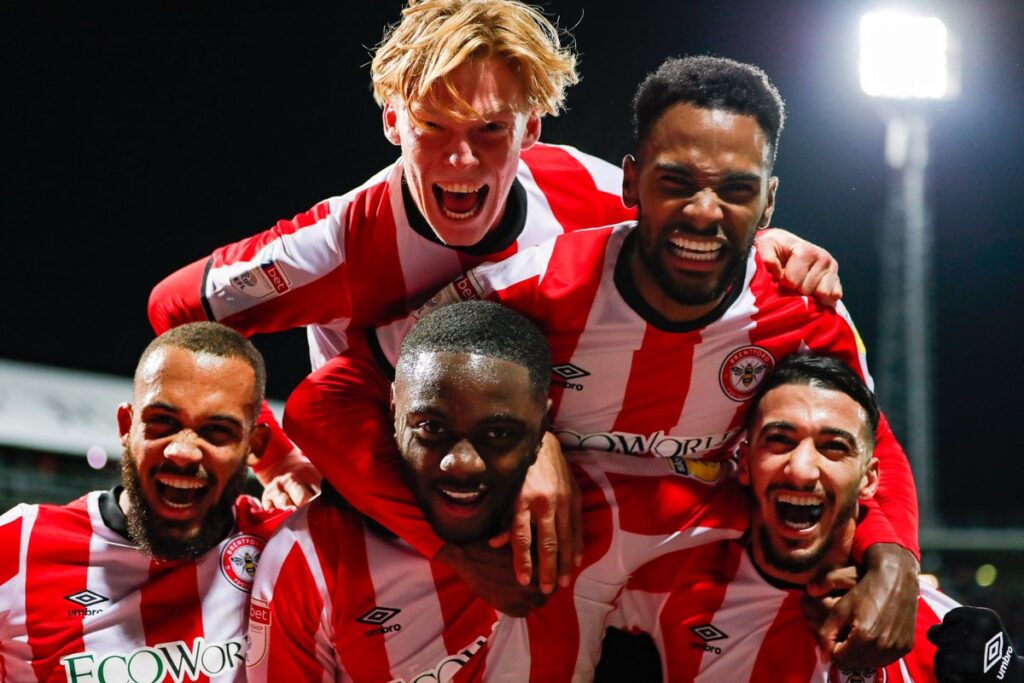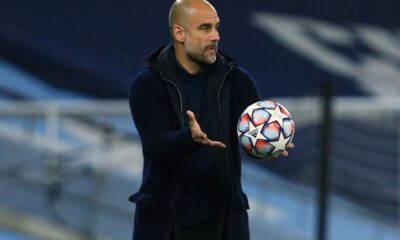Football
What’s behind Brentford’s success? An owner obsessed with numbers, a transfer strategy and a disbanded academy
A lot of fans were expecting a nice revival of the Premier League from Brentford. And so far, the west London team is delivering. What’s behind its meteoric rise in recent years?

A lot of fans were expecting a nice revival of the Premier League from Brentford. And so far, the west London team is delivering. What’s behind its meteoric rise in recent years?
Brentford made their first ever appearance in the Premier League this year, having last played in England’s top flight in 1947. However, it can’t be said that this is showing in the team – they certainly don’t look like newcomers.
Thomas Frank’s charges are building on their Championship performances, showing attractive football and, above all, picking up points. Arsenal, Wolves and, most recently, Liverpool have been able to prove it. In 6 league games Brentford came out empty handed only once – in a 0:1 loss to Brighton.
“I think we are doing something right,” said Thomas Frank about the good form of his team. The Danish coach has been at the club since 2016 as an assistant, taking over as head coach after Dean Smith left for Aston Villa in 2018. “ According to the forecasts, we should not be doing well in this league, but we are where we are,” he added.
As Frank uttered:: “They are really doing something right at Brentford. The Bees are going through a successful period at the moment. Probably the biggest contributor to that is owner Matthew Benham, who bought the club in 2012.”
Benham studied physics at Oxford, then spent several years in the world of finance (he was even a vice-president at Bank of America). Eventually, however, his love of football and fascination with data, analysis and statistics came to the fore.
He started working for Premier Bet, a betting company, and although he only lasted 2 years, he was able to put his experience to good use. As a professional bettor, he became rich and founded his own company Smartodds.
His next step was straight into the world of football. He first helped Brentford, a team he has supported since he was a young boy, out of financial difficulties and became the owner in 2012. Two years later he also bought Danish Midtjylland.
And at both clubs he began to practice his experience in the betting industry. He relied on working with data and mathematical analysis. At Midtjylland, he tested his ideas and if they worked, he applied them at Brentford. And the results came quickly.
In 2014, the London club was promoted to the English League 2, where it immediately established a stable position. It has always finished in the top half of the table and regularly battled for promotion. The play-off final in 2020 still didn’t come off, but a year later Bees fans could rejoice.
Brentford had risen to the top of the English football pyramid. Not even the fact that he lost key players every year along the way prevented him from doing so. The likes of James Tarkowski, Ezri Konsa, Neal Maupay, Ollie Watkins, Saïd Benrahma, Andre Gray and Chris Mepham have all left the club in succession.
This is, after all, the basis of the club’s strategy. “The pillar of our transfer policy is to make money on transfers every year,” says club CEO Jon Varney. “We have to regularly acquire cheap players with potential, but that alone is not enough. We also have to work with those players and increase their value.”
Brentford can’t afford to stretch money too thin. Even in League Two, he had one of the smallest budgets. That’s why he relies on thorough data analysis and statistical models in the transfer market. This allows him to find cheap underrated players who play below their potential but fit the team’s style of play.
By buying, working with players, increasing their value and selling them, the club is thriving. The aforementioned Watkins, Benrahma, Gray, Maupay, Tarwkowski, Konsa and Mepham came together for £9.6m. They spent an average of 2 seasons at the club, subsequently Benham’s club made £113 million by selling them.
Brentford must be doing things a bit differently. “We are determined to do things differently,” says Varney. “We don’t want to be old-fashioned, we want to take risks. But our risks are carefully calculated.”
A prime example of such ‘calculated risks’ was the closure of the youth academy. Brentford made this unusual and at the time controversial decision in 2016. The club no longer wanted to spend money on bringing up players, the best of whom were regularly bought up by higher-ranked English clubs before they came of age, without starting for the A-team and Brentford receiving a significant sum for them.
Instead, the management decided to create a B-team, which they said would provide the players with the most effective route into senior football. The squad is made up of mostly 17 to 21 year old players who have been released from other teams.
Due to their withdrawal from the English youth system, Brentford B are not registered in any competition, their programme instead consisting of attractive friendlies. The opponents are varied – Bordeaux, Valencia, youth teams of Bayern Munich or Chelsea or teams from lower English competitions.
Proof that the B-team is beneficial to Brentford can be found in the likes of Chris Mepham. Brentford brought him to the B team for free, then sold him to Bournemouth for £11m. Mepham is now also playing for the Wales national team.
Or perhaps young Finn Marcus Forss, who has developed into a first team player at Brentford B after his release from West Brom. He too is now representing his country. Last season, moreover, it was he who decided the semi-final and sent Brentford to Wembley.
The coaches of the team are aware that only a small number of B-team players will make it in the main team, so they try to prepare their charges for different styles of play than what may await them at Brentford.
“We are aware that only about 20% of our players will play for Brentford’s A team, so we are trying to prepare the other 80% for a different type of football to ours,” explains assistant coach Allan Steele. “If a player transfers from us to another club and can’t adapt, I take it that we’ve probably failed.”
“Our B-team is the best way to approach senior football, ” Brentford’s director of football Rasmus Ankersen told Sky Sports. “It’s helped by the extensive coaching staff and the number of specialists who look after the players. But there is more to it than that.”
“In football, for some reason, a lot of clubs try to keep the main team separate from the youth teams. We are trying to change that too, we realise how important it is for young players to have a role model. Our A-team and B-team share a canteen and gym. It helps the young players to see that those they look up to are just people too,” Ankersen continues.
Former Brentford technical director Robert Rowan, who sadly passed away in 2018 aged just 28, played a big part in the formation of the B-team. In his honour, the club has created The Robert Rowan First Team Debut Board, where all B-team players who link into the A-team are entered. Czech midfielder Jan Zambůrek is also on the board.
Thanks to Robert Rowan, Brentford is now where it is. And although it, like all clubs, has been hit by the coronavirus pandemic, it now looks set for an even brighter tomorrow. All in a brand new stadium that opened last year.
Brentford Community Stadium can seat 17,250 spectators. Despite being the smallest capacity stadium in the league (or maybe because of it), it offers a great atmosphere, which Bees fans demonstrated in the first round when their favourites took on Arsenal.
Participation in England’s top competition, a new stadium, good results, great players – Brentford are doing it all at the moment. “It’s our first time in the Premier League, we have to enjoy it as much as possible,” says Varney. And it’s hard to disagree.
Coach Thomas Frank, who made an indelible mark on the hearts of the fans and the club’s history after winning the League 2 play-off final, is also enjoying the situation. Now, however, he and the entire club are facing a new challenge. It will be a while before we know how Brentford will cope with it, but it is already clear that they have a great chance.
Source: Goal, Brentford FC












